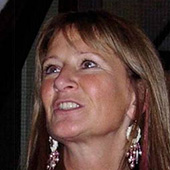While many humanities scholars are enthusiastic users of a wide range of information resources – including visual and sound materials, and 3D scans of artefacts – there is still a potential mismatch between what current digital resources offer and the way that humanities scholars might discover and make use of them. As new types and forms of information become available to humanities researchers, it is vital that these resources are designed to be used intuitively and effectively.
The Humanities Information Practices project, coordinated by the Oxford Internet Institute (University of Oxford) and funded by the UK’s Research Information Network (RIN) aims to identify patterns of scholarly behaviour, potential problems, and areas that might be improved by the adoption of new working practices or technologies. The research team is drawn from the University of Oxford, and partners University College London (UCL), and the Royal Netherlands Academy of Arts and Sciences.
Eric T. Meyer, PI and Project Director, Research Fellow at the Oxford Internet Institute, said: “Members of this project team have a long-standing interest in understanding how new technologies support and enable changes in research practices across the sciences and humanities, and this project is designed to really understand in detail how humanities scholars are engaging with various forms of information, both technologically-based and non-technological.”
Claire Warwick, PI and Director of the UCL Centre for Digital Humanities, said: “Humanities scholars still prefer generic informational resources such as library and archive web pages, and typically using browsing and ‘chaining’ rather than keywords to discover information. Yet information systems, including those for cataloguing and finding analogue materials, tend to be designed with the assumption that users will conduct research using keyword queries.”
Marina Jirotka, PI at the Oxford eResearch Centre (OeRC), said: “Humanities scholars use technologies when they fit well with what they do (especially if they save time or effort) and ideally would prefer not have to acquire too many new skills to use them. If appropriate resources, containing useful digital content with a usable interface can be developed that can demonstrate enhancements in current practice, this should result in a significant improvement in uptake.”
In order to understand user behaviours, needs and preferences in the humanities field, the project will collect data on information behaviours through diaries, website logs and webmetric data, interviews, and focus groups.
To investigate how scholars mix digital and analogue resources, and how information practices in the humanities are changing, case studies will be undertaken on users of the Old Bailey Online (proceedings of London’s central criminal court), the Enlightenment Letters Project, and the Digital Image Archive of Medieval Music (DIAMM). Members of two traditional university departments will also be included, to investigate practices that take place within the relative confines of an institution.
The project will also look at the practices of scholars who work across international boundaries. Sally Wyatt, PI and Professor of Digital Cultures in Development, Maastricht University and Royal Netherlands Academy of Arts and Sciences, said: “Digital technologies not only make it easier for scholars to access sources, it also makes it easier for them to communicate with one another across institutional and international boundaries. One of the case studies will examine a group of Dutch and British historians of science interested in the letters and other exchanges between leading Enlightenment figures.”
The above case studies will take into account the modalities of information (for example, differences between text and image data can have profound consequences for information seeking and use), formal and informal information resources (for example institutional archives and Web 2.0 sites), and infrastructure – such as access to hardware, software, and technical support.
The final project report will be made available in November 2010. Interim findings will be presented at events at each collaborating partner, and at other relevant conferences and workshops.
Notes for Editors
The Research Information Network (RIN) is a policy unit funded by the UK higher education funding councils, the seven research councils and the three national libraries. RIN aims to: enhance and broaden understanding of how researchers in the UK create and use information resources and services of all kinds; support the development of effective policies and practices for researchers, institutions, funders, information professionals and everyone who is involved in the information landscape.


